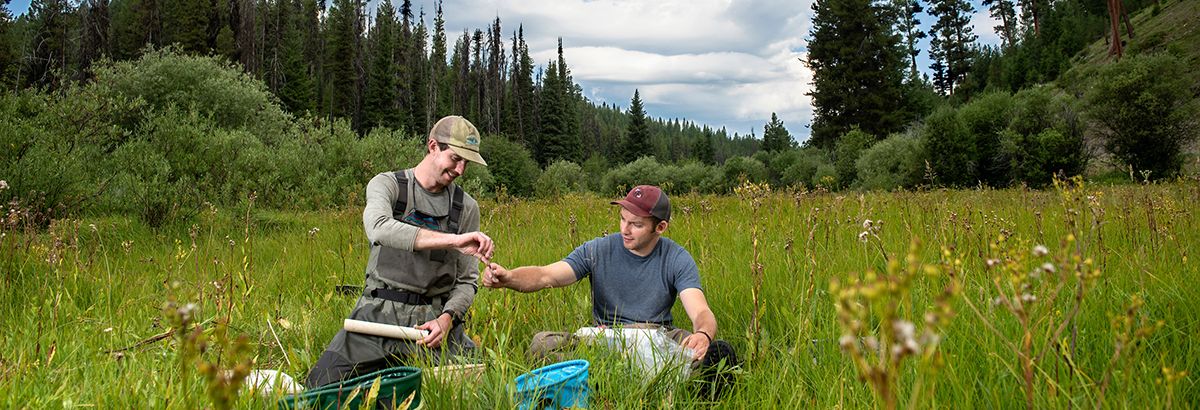Student Spotlight: Sierra Streuli
In this episode, hear from Sierra Streuli, a master’s student in the sociology department, about her research focusing on barriers to reintegration of ex-felons.
I am from Southeast Alaska, a little island called Petersburg. The community that I'm from has a large Alaska Native population and for as small of a community as it is, I would say is pretty diverse. Growing up, I feel like I recognized different treatment of different groups. Like maybe, I was being treated differently than my friend who was Alaska Native or my friend who was African American. And so, sociology provided an answer for a lot of these things and why is society is the way that it is.
I'm Sierra Streuli. I'm a master's student in the sociology department where I study inequality and social justice.
My interest surrounding the topic of discrimination in hiring really started in my undergrad here. We read some literature surrounding discrimination of ex-felons specifically in the hiring process and as we were reading that information and as I did my own research, I learned that there was a population missing from this line of research. And that was specifically Native American and Alaska Native ex-felons. And I found it to be incredibly problematic that this group of people was being excluded, because their experience really deserves to be researched. And also, historically they’ve been excluded from research. And so, I think it’s really important to put them at the forefront of a study on this topic.
So, when you start the sociology master's program, you normally come in with kind of a research interest or a research idea. I wanted to look at barriers to reintegration of ex-felons. I felt like it was so important to this like larger picture, as we see, you know, incarceration rates going up and up and specifically people of color being incarcerated at higher rates than any other group. I just felt like this was such an important contribution to the literature and that this would be the best way I could really be of service to helping this like larger goal of combating racial inequity in the United States.
I came up with this topic and then I asked Kathy Kuipers to be my chair. She specifically had this, project already going called the Calling All Alumni Project, which worked to set up alumni so that they could participate in student research, even though that they weren't on campus anymore, they could still feel part of it through participating in this research. And the Ñý¼§Ö±²¥ alumni evaluated the fictitious job applicants that I created for fictitious job positions. And then they were asked to choose their preferred candidate, and then I measured who they picked as the preferred candidate the most.
What I ended up finding was that people in my survey who were responding to my survey, this alumni population were weighing criminal history more heavily than race, which was not expected. So, my research is actually indicating a need for more research on the topic. Why is this interaction occurring? And like, in order to be able to say more about why that's occurring, we need more research. Because mine is, it appears to be the first, study of its kind looking at Native American specifically with this phenomenon. Because, like, Latinx groups, African Americans, Muslims have all been studied with this phenomenon and Native Americans seem to be the only group still being excluded from this topic.
I really wanted my study to, you know, have consequential findings and mean something and be able to take it and say, Hey, this is something that I found and this is how we should fix it or be able to come up with a plan to fix it.
I would love to kind of make a transition over to the legislative side and doing more criminal justice reform work at the policy level, because I think that's where the need is the most. What I would really love to do is research-based policy work, bring my research to the legislators and present it to them and say, Hey, this is something that's occurring. How can we from a legislative perspective, combat this and work towards more equitable hiring process for everybody.
